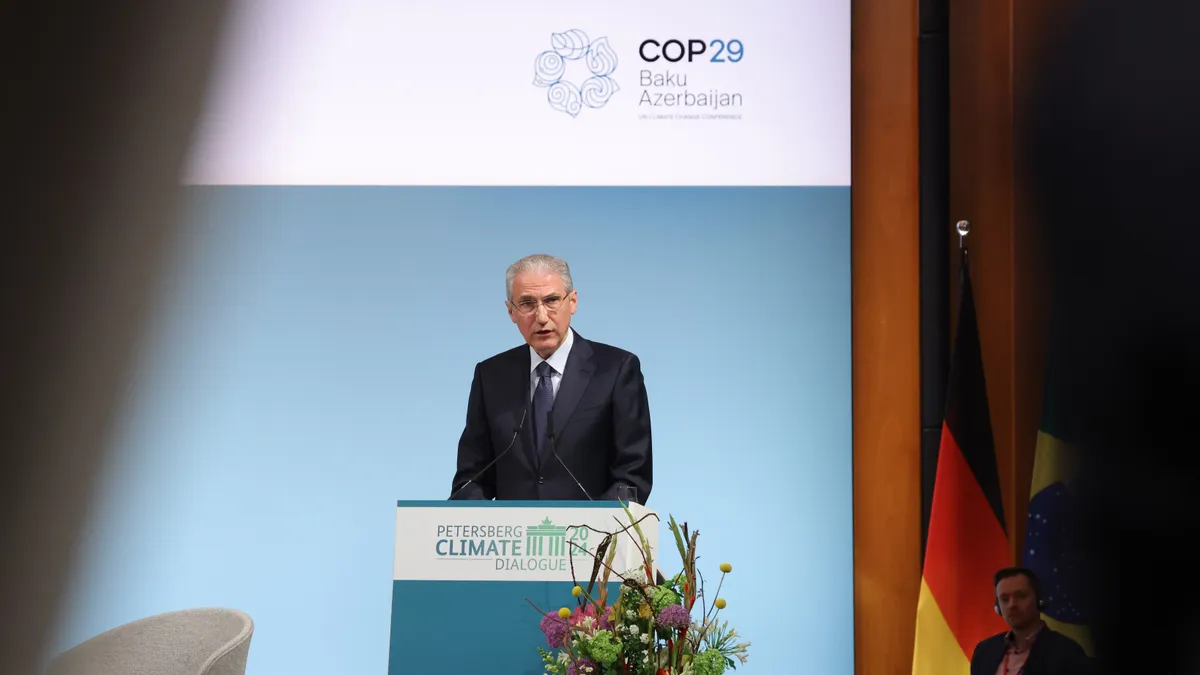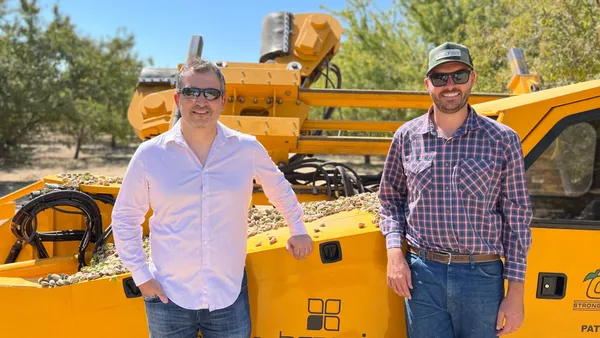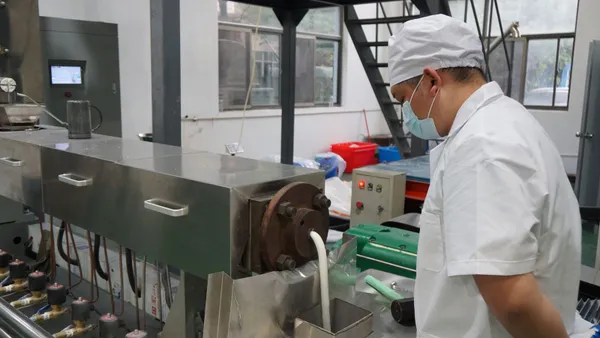Dive Brief:
- Food and agriculture will play an outsized role at the upcoming COP29 United Nations Climate Summit as host country Azerbaijan releases a list of priorities that emphasize methane reduction over a phaseout of fossil fuels.
- An agenda for the November summit released Tuesday includes global initiatives around farming and reducing methane from waste and food systems. It also includes calls for countries to increase energy storage capacity and take action on water issues.
- COP29 president-designate Mukhtar Babayev also unveiled a new effort this year called the Baku Harmoniya Climate Initiative for Farmers, which is meant to serve as an aggregator of different coalitions and networks to facilitate financial investments and foster collaboration.
Dive Insight:
After years out of the spotlight, agriculture and food systems are quickly becoming a central pillar of countries' plans to meet the Paris Agreement, which aims to keep global warming within 1.5 degrees Celsius.
Climate action on agriculture, food and water will be the focus of high-level talks at the conference on Nov. 17, marking the second time the issue receives a dedicated day in the summit's history. The meeting will include the release of a declaration to reduce methane from food or other types of organic waste.
"This is a challenge that Azerbaijan understands well, as a large part of our labour force is employed in agriculture, while water scarcity, desertification, and soil degradation exacerbated by climate change all threaten to reduce the yields of crops and impact economic development," Babayev wrote as part of a letter to stakeholders.
The action agenda contains no mention of reducing fossil fuels, with methane set to be a major focus of the upcoming climate summit. Babayev, a former state oil exec and Azerbaijan's minister of ecology and natural resources, also emphasized in the letter the need to expand renewable energy sources.
The action plan calls on countries to create "green energy zones" that act as centralized hubs to maximize sustainable energy generation. It also pushes for "green energy corridors" to allow for cost-effective transmission over large distances.
While the plan does not mention what type of sustainable energy should be expanded, Azerbaijan is a major exporter of natural gas.
"Climate change affects everyone differently: We face extreme heat, water scarcity, and declining water levels in the Caspian Sea that have a direct impact on our lives and livelihoods," Babayev, a former executive with state-owned oil and gas company Socar, wrote in his letter.
"But we are also a source of solutions and opportunities …. supporting transition to low-emissions and climate resilient development not only at the national, but also at the regional and global level, and we are determined to lead by example," he added.
COP29 is scheduled to take place in Baku, Azerbaijan, from Nov. 11-22.











